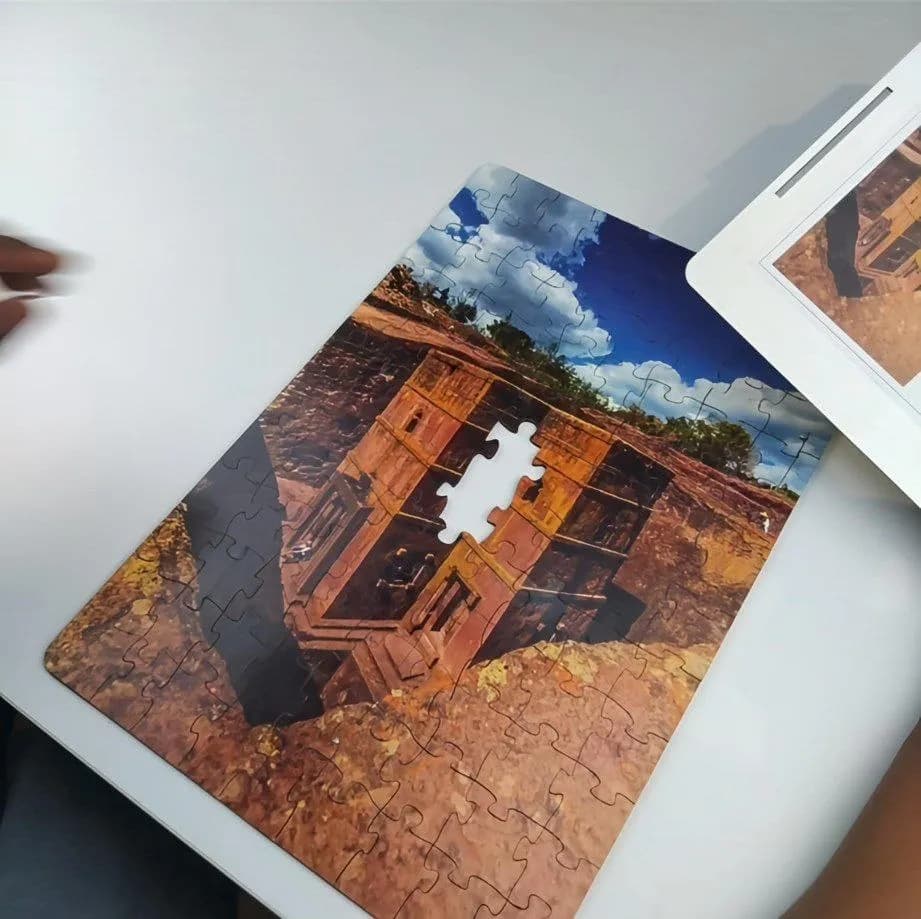Progress for 0 ad
Progress for 1 ad
Progress for 2 ad
Progress for 3 ad


Daniel Metaferiya
Addis Ababa, Ethiopia

For generations, solving puzzles was a quiet ritual of childhood, a pastime that stretched the imagination and sharpened problem-solving skills. Today, that quiet has been drowned out by the glow of phones, tablets, and gaming consoles. Yet in Addis Ababa, one young entrepreneur is betting that an old pastime, remade with Ethiopian flavor, can win children back from their screens.
Gebeta Puzzles, founded just a year ago, is the brainchild of Dawit Solomon, a recent industrial engineering graduate with a knack for design. He first stumbled on the idea while studying at Addis Ababa Science & Technology University.
“I have always wanted to own a business,” he told Shega. “Puzzles fit perfectly into my plans and skill set.”
The puzzles he produces are not imported, nor do they feature generic cartoon characters. Instead, they draw on Ethiopia’s history, culture, and landscapes. Each set, cut from sand-mixed Medium Density Fibreboards (MDF) and decorated with vivid stickers, reveals a familiar landmark, an endemic animal, a cultural artifact or a historical landmark. Parents, eager to reduce their children’s screen time, have begun seeking them out in growing numbers, powered by the startup's growing social media presence. Gebeta puzzles has even more recently received orders from financial institutions looking for branded puzzle sets.
Puzzles themselves are hardly new. From ancient riddles in Mesopotamia to the tangram of imperial China, from John Spilsbury’s geography jigsaw in 18th-century London to the Rubik’s Cube of the 1980s, they have long reflected both play and pedagogy. Yet in Ethiopia, the market has been dominated by expensive imports. A simple foreign-made set might sell for 4,000 Birr or more despite offering little in terms of local nuance. The first-ever Lego store only opened in Ethiopia last year. Globally the puzzle market has been growing in recent years and is estimated to have a value of around $5 billion by 2028.
Gebeta’s smallest puzzles begin at 150 Birr, while the largest and most intricate reach 3,000, still below the imported equivalents. So far, Dawit offers seven varieties, each designed to test memory, logic, and creativity while tethered to an Ethiopian context. The founder considers puzzles as one of the few alternatives to digital gadgets that can educate and entertain children. He dreams of building a self-sufficient enterprise that can handle every step of production in-house. So far, Gebeta relies on a variety of outsourced service providers to provide wood, some of the labor, and a few other components
“Every piece fits into our long-term vision,” he said, with a smile that suggests he sees the future very much like another puzzle.
👏
😂
❤️
😲
😠

Daniel Metaferiya
Daniel Metaferiya is a writer, journalist and radio host, with a keen interest in technology. He follows developments in Ethiopia's startup ecosystem closely and is passionate about profiling unique MSMEs.
Your Email Address Will Not Be Published. Required Fields Are Marked *